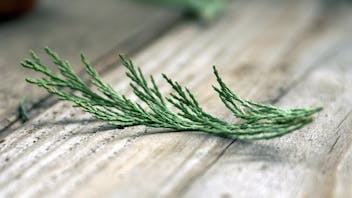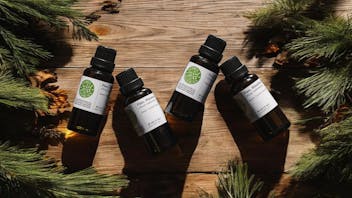Product Overview
Our organic unrefined Moringa Oil has a mild, oily, seed-like like aroma along with an exceptionally smooth slip that instantly lubricates the skin without leaving a trace. Moringa oleifera is one of about 13 species of this remarkable botanical, appropriately dubbed the ‘miracle tree’. Every single part of the fast-growing, sturdy Moringa tree was utilized in ancient Egypt where the leaves, nuts and oil became culturally important for skin care.[1] The ratio of approximately 13% saturated to 82% unsaturated fats yields an oil that is quite stable against rancidity.
Our producer has been working alongside the Matsangoni people of Kenya to help drive the sustainable, profitable and environmentally sound production of Moringa products, lessening the dependence on labor-intensive maize and the more volatile tourism industry. Together with local farmers, they have planted over 60,000 trees that will bring additional income and security especially for head-of-household women and their families.[2] For a new generation of Moringa farmers, youth skills, local employment (including the elderly and retirees), land cooperatives, collective rewards for schools and clinics, entrepreneurial development and guidance in sustainable land stewardship provide real world benefits for a population eager to support themselves.
One of the many commercial names for Moringa Seed Oil is Ben or Behen Oil due to its content of behenic acid, (aka docosanoic acid), a 22-carbon, long-chain fatty acid that makes it an ideal oil to use in cold process soap making, bath bombs, body scrubs and butters, and for lotions and conditioners. The fatty acid profile of Moringa Oil is on a par with Olive Oil, but it is far less costly to produce. Specific protein fractions in Moringa oleifera seeds are specifically extracted for the cosmetics industry for their unique hair and skin conditioning properties. But of particular interest to both aromatherapists and natural perfumers, “[Moringa’s] fatty acids extract and help hold the most delicate and fugitive scents in perfumery,”[3] – only one of the many outstanding features of this oil – thus it is an excellent fat to use for aroma extraction of precious botanicals such as Jasmine, Gardenia and Tuberose using the enfleurage method.[4]
Want to know more about how to use Moringa Oil as a base for your essential oil blends? Read Dilution Solutions to learn about essential oil to carrier oil ratios and how to mix essential oils with carrier oils.
1 Parker, Susan M. Power of the Seed, 2014, p. 153.
2 Industry communication.
3 Parker, Susan M. Power of the Seed, 2014, p. 153.
4 Ibid.



